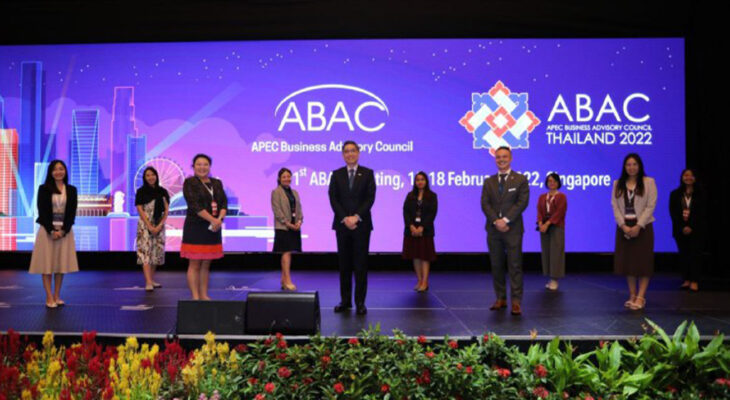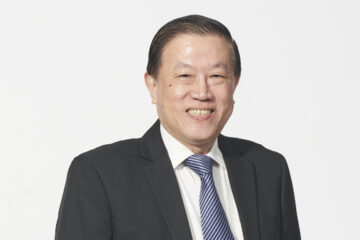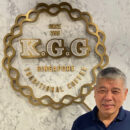
A Reflection On Singapore’s Hosting Of The First Apec Business Advisory Council Meeting Of 2022
Singapore’s advocacy efforts on regional and international business platforms are even more relevant as the global economy emerges from the pandemic.
The Singapore Business Federation (SBF) is the Secretariat for Singapore’s participation at the APEC Business Advisory Council (ABAC), a group of business leaders appointed by their respective heads of governments to provide private-sector advice to APEC governments. The Council meets quarterly to develop their recommendations and work programme. Thailand, as the Chair for ABAC 2022 appointed Singapore to host the first ABAC Meeting for 2022, which took place on 15-18 February at Resorts World Sentosa.
This was ABAC’s first in-person meeting after two years of virtual meetings. More than 100 delegates from the 21 APEC economies attended the meeting physically, with another 150 delegates participating virtually in ABAC’s first-ever hybrid meeting. The seamless manner through which virtual participants could interact with those attending in-person was a clear demonstration of Singapore’s leading business infrastructure and organisational capabilities to business communities in the region.
Significance of holding ABAC I 2022 in person
The hosting of the ABAC I was an important first step taken to allow Asia Pacific business leaders to reconnect face-to-face and was a clear signal to business communities in the region that Singapore is “open for business”. The resumption of cross-border travel is also critical for global economic recovery. While the Covid-19 pandemic has accelerated the use of innovative technologies and enabled business to engage virtually, there has also been strong recognition that in person interactions are essential especially for businesses to establish new relationships and build trust.
The importance of such connectivity has been thoroughly discussed at ABAC where SBF led on the development of recommendations on safe opening of borders made to APEC leaders through a survey conducted between April and June 2021. These recommendations included developing a regionally consistent framework for travel, harmonising travel regimes and green lanes, knowledge sharing and information exchange and the establishment of a multi-disciplinary APEC task force to help create an APEC-wide framework.
The APEC Safe Passage Taskforce was established in response to ABAC’s recommendations to coordinate cross-border travel resumption and drive forward greater regional connectivity. The taskforce seeks to implement initiatives with tangible solutions to reinvigorate the travel and tourism sector, jumpstart the region’s economic recovery, and lay the foundation for enhanced connectivity in the longer term.
ABAC, the voice of enterprises, and its importance to Singapore
ABAC is the private sector arm of the Asia-Pacific Economic Cooperation (APEC) and its mandate is to advise government leaders and APEC officials on issues of interest to the business community. Singapore has been a champion of APEC and closer economic ties in the Asia-Pacific as one of APEC’s 12 founding members in 1989 and host of the APEC Secretariat.
This year, SBF CEO and ABAC Singapore Member Lam Yi Young will chair ABAC’s Regional Economic Integration Working Group (REIWG) that covers cross border trade and investment policy issues such as progressing the Free Trade Area of the Asia-Pacific (FTAAP), supporting the World Trade Organisation (WTO), strengthening services trade and investment, and the resumption of travel.
The Asia Pacific region, in turn, is particularly important for Singapore. According to a report published by the APEC Policy Support Unit, APEC Economies accounted for 62 percent of global nominal GDP and 48 percent of global trade in 2020.
All of Singapore’s top ten trading partners, apart from the EU, are part of APEC and over 75% of Singapore’s global trade in goods and services are from APEC economies. Greater integration among economies and businesses, and the lowering of barriers to trade and investment in the region will strengthen Singapore’s economic future.
Singapore and international business advocacy
The global market also provides opportunities for our businesses and foreign investment creates many of the good jobs that Singaporeans aspire to. With Singapore’s international trade more than three times its gross domestic product, our livelihoods and prosperity depend heavily on the global environment for cross-border trade and investment which are in turn influenced by geopolitical and economic developments. One such example could be seen despite the progressive easing of Covid-19 curbs, Singapore being a small domestic market has a limited ability to drive growth, although consumer sentiments have improved.
Reducing obstacles to international trade and ensuring a level playing field is therefore important for our businesses to do well internationally and grow through new markets. It is for this reason that our business community is one of the strongest supporters of the World Trade Organisation (WTO) and the rules-based multilateral trading system that it embodies. Complimenting the WTO are regional platforms like APEC, which can serve to develop new standards, such as the APEC Cross Border Privacy Rules system, and advance on issues of common interest, such as APEC’s list of environmental goods.
ABAC and other international business platforms serve to amplify the voice of Singapore businesses on these issues by bringing together like-minded business communities and to provide a formal platform for businesses to make their collective views and recommendations to governments. ABAC’s annual letter and report to APEC Leaders and B20’s Communique and various policy papers are examples of regular reports governments receive at their request to serve as reference points for policy development. There are also often dialogues and meetings that take place between businesses and officials through these platforms that allow businesses, apart from advocating business views, to also understand the perspective of governments which answer to a larger and more diverse group of stakeholders.
To understand how you may contribute to Singapore’s international advocacy efforts or to provide feedback on international and regional business issues, please contact us at [email protected]
For more information on ABAC, please visit https://www2.abaconline.org/.
By Mr Jason Lee, Director, International Policy & Engagement, Global Division 1, Singapore Business Federation


















